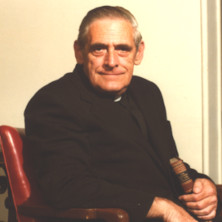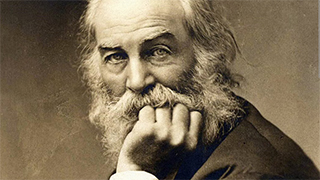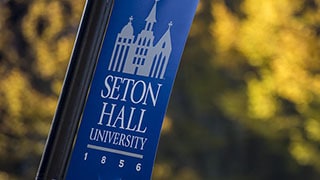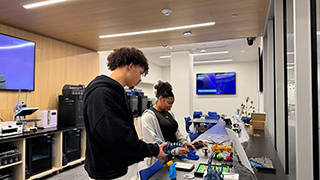Inside the Core - Seton Hall University
Friday, September 4, 2020

However, this is not the only change that Core I: Journey of Transformation students are experiencing. As part of the campus-wide efforts to make classes more diverse and inclusive, Core I began with a reading that deals with the topic of how universities and colleges need to make themselves more relevant to the social issues of the day. In light of accusations by students and others that the academic world had become elitist and irrelevant to the actual problems and concerns of the world surrounding them, the text, a speech, urges Seton Hall to open up the doors to become more diverse, more concerned with justice, more involved.
The speaker, referring to academia, says "we are charged with teaching academic disciplines without sufficiently emphasizing their human, social, and political implications, or in shorter modern formation, without offering value-judgments." Naming several issues, two of them being environmental destruction and social inequity, coupled with injustice; he says, "we now face an ecological crisis of catastrophic proportions. We could, we are told be buried in our garbage, be asphyxiated by the exhaust of cars, or poisoned by the effluvia of our waters." He goes on to challenge us regarding the lack of social justice in our society; though, "significant numbers of its citizens are grievously deprived of their share of freedom and prosperity and are denied the respect and self-respect that go with being full members of society…. the collective alumni of our colleges to a large degree temporize, adopt half measures, give excuses, meanwhile hoping against hope that the problems of poverty and racism will solve themselves by some magic, or, better yet, disappear."
These words sound quite relevant to today's world, particularly the academic world, but they were spoken by then President of Seton Hall Msgr. Fahy at his inauguration here in 1970. He mentions also how the teaching of morality should apply to the war in Viet Nam, protested widely at the time, including protests here at Seton Hall. His support of civil rights and his work as what is called today an "anti-racist" involved starting one of the first Black Studies programs in the country, the first in New Jersey, and inviting activists like Nathan Hare to speak at Seton Hall and encouraging students to work with Leroi Jones (Amiri Baraka), for which he was criticized, as Dr. Kelly Harris, Director of the Africana Studies Program, told faculty in a TEAMS meeting for CORE faculty and students in a video shared with all Core I classes.
Many of us walk in and out of Fahy Hall and know little or nothing of the man for whom it is named. His legacy of making the academic world relevant to real problems and to students' actual concerns is as important today as it was in 1970. Perhaps it is even more important – because we have not fully lived up to it, and we have a long way to go. As one of my own Core I students said in class today, regarding Plato's "Allegory of the Cave," the prisoners in the cave see only shadows in part because they are forced to look only ahead, never backward, noting that looking behind historically helps us to understand what is in front of us. Let us begin by remembering the warnings and legacy of Msgr. Fahy, and let them help us move with more relevance and moral courage into the future.
Categories: Nation and World






